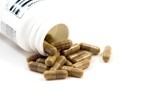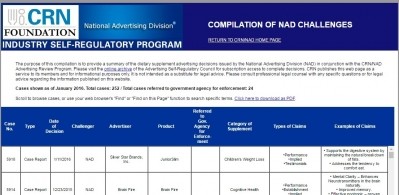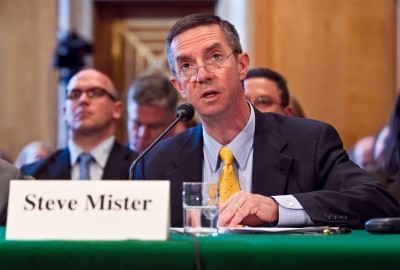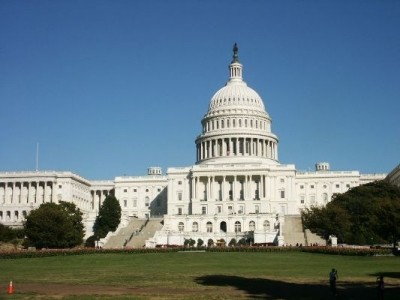‘Really outrageous’ claims on the wane in print/TV, says CRN

CRN chief executive Steve Mister was speaking to NutraIngredients-USA.com five years after the CRN started funding an attorney specifically to tackle false claims about dietary supplements at the National Advertising Division of the Council of Better Business Bureaus (NAD).
NAD - an industry-backed self-regulatory forum scrutinising national ad campaigns - has reviewed 100 dietary supplements cases since the CRN initiative began in 2006 and remained the cheapest and quickest way to tackle dubious claims in the trade, argued Mister.
“If you go to NAD, you can get an issue resolved in 90 days. If you went to the FTC (Federal Trade Commission) or sued a company for false advertising, you wouldn’t even get the pleadings done in 90 days. Some of the cases the FTC has looked at have taken years to resolve.”
Co-operate with NAD or things will get much worse...
He added: “There is always a small number of people, especially those making claims online, that don’t agree to co-operate with NAD, or will just dissolve their business and start again, but most companies realise that NAD is a far better option than the alternative. They also know that if they don’t respond, the next phone call they might get could be from an attorney at the FTC.”
As to the extent of false or misleading advertising about dietary supplements, anecdotally, things seemed to be getting better, claimed Mister.
"I think the situation has improved over the last five years. The fact that the FTC has become more aggressive has also helped. There are still lots of fly by night companies on the internet making false claims but I think consumers are becoming more wary of this kind of thing. Five years ago you would get these outrageous claims on network TV and major newspapers, but you definitely don't see as much of that now. Some of the cases do involve multinationals but a lot also involve smaller companies that don't understand the law."
As to the extent the NAD initiative had made a difference, it was hard to say, although the CRN had heard anecdotal evidence to this effect, he said.
“We’ve tried to find metrics to measure the effectiveness of the NAD process, but it doesn’t operate in a vacuum.”
What happens after 2014?
It was also too early to say whether the CRN would continue to fund an attorney at NAD after the latest grant (amounting to around $192,000/year) expired in 2014, said Mister.However, there was no doubting the value of the scheme.
“Initially, the program was only supposed to last three years but it has been so successful that we extended it for another five.”
He added: “We need a program able to do more than the FDA (Food and Drug Administration) or the FTC is able to do. They are constrained by a lack of resources and will prioritize cases where public health is at stake, rather than where claims are untrue or misrepresent the science. Here’s it’s not an issue of public safety but confidence in the dietary supplements industry as a whole.”
30 dietary supplement probes in 2010 at NAD
In 2010, NAD handled nearly 30 dietary supplements cases out of a total of 145 cases, said a NAD spokeswoman.
The NAD review process is voluntary, but if a company declines to participate, or declines to abide by the terms of a decision, federal agencies were typically contacted, she added.
“We forward the advertising at issue to the most appropriate federal agency for further review. Nine times out of 10, we refer the advertising at issue to the FTC, although we also refer cases to the FDA. Compliance runs at about 95 percent.”









